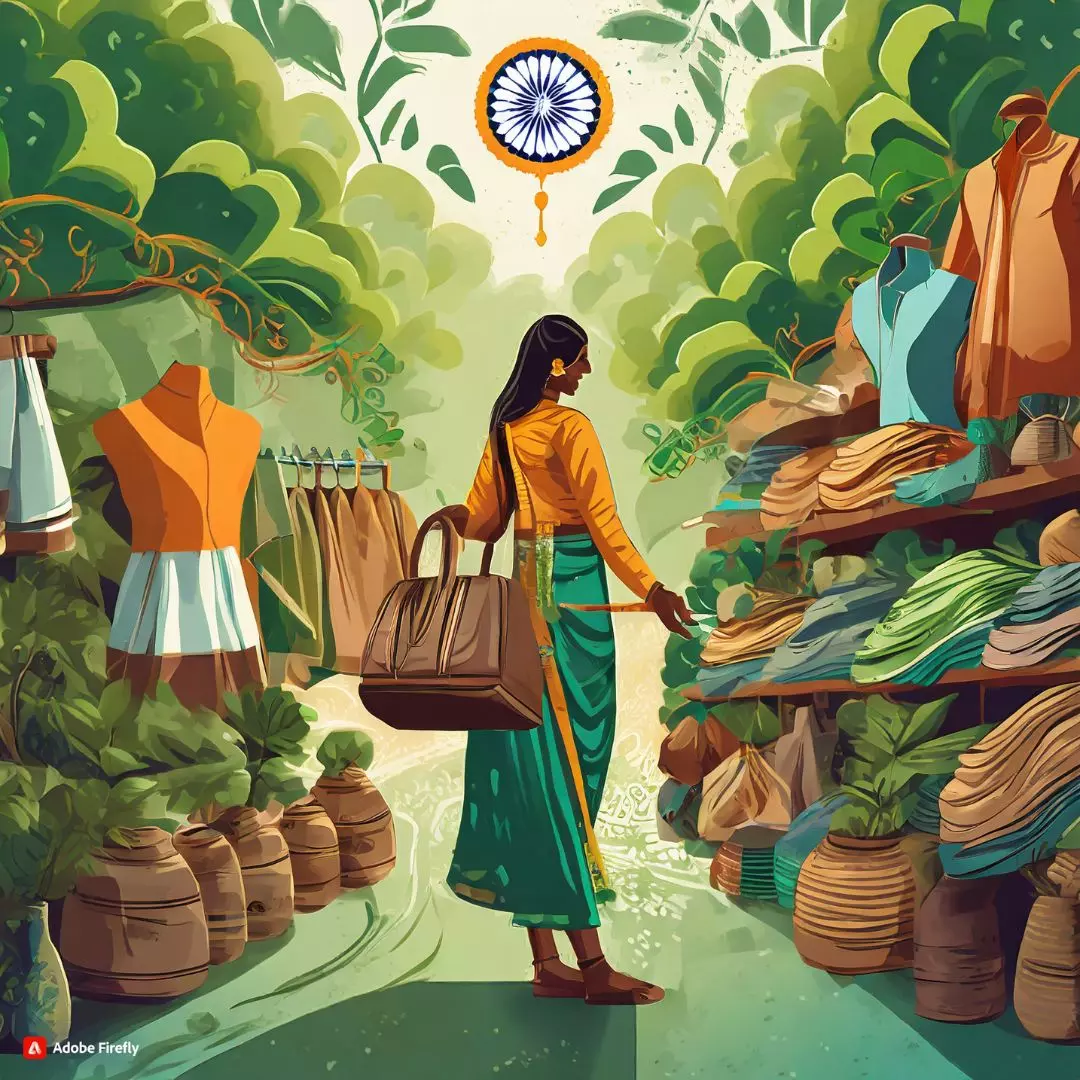In the heart of India’s bustling fashion industry, a profound transformation is underway. The sector, historically marred by environmental concerns and labor exploitation, is witnessing a groundswell of initiatives aimed at fostering sustainability. From ethical practices to waste reduction and the embrace of eco-conscious materials, the nation’s fashion landscape is experiencing a paradigm shift. In this comprehensive exploration, we delve into the intricate tapestry of India’s sustainable fashion journey, examining the challenges faced, innovative solutions implemented, burgeoning opportunities for entrepreneurs, and the transformative outcomes reshaping the sector.
As the world’s second-largest textile producer with a rich historical tapestry of textile production, India plays a pivotal role in the global fashion industry. However, this prominence has come at a cost – environmental degradation and exploitative labor practices. In recent years, a growing awareness of the industry’s impact has sparked a paradigm shift towards sustainable fashion. This evolution is evident in the commitment of numerous brands and entrepreneurs who are actively engaged in creating eco-friendly and socially responsible fashion products.
India’s path towards sustainable fashion is not without hurdles. Water pollution, driven by the textile industry’s significant water usage, is a pressing concern. The Central Pollution Control Board reports that the textile industry is responsible for 17-20% of industrial water pollution in the country. Furthermore, the extensive use of toxic chemicals in textile production, as highlighted by the Centre for Science and Environment (CSE), positions the industry as the third-largest water polluter in India.
Lack of transparency and awareness compounds the challenges. Many companies within the textile industry refrain from disclosing crucial information about their sourcing and production practices, hindering consumers’ ability to make informed choices. The lack of awareness among consumers about sustainable fashion creates a hurdle, with affordability often taking precedence over sustainability considerations.
India’s Sustainable Fashion Landscape
Despite these challenges, India has been proactive in implementing solutions to foster sustainable textile production and responsible consumption. The use of sustainable materials, such as organic cotton and bamboo, is on the rise, with India accounting for 20% of global organic cotton production, according to the Textile Exchange. Recycling and upcycling initiatives, ethical labor practices, and the adoption of natural dyes are becoming integral components of the sustainable fashion landscape.
The shift towards sustainable fashion is not just a challenge but a canvas of opportunities for entrepreneurs in India. The market’s potential is immense, with McKinsey projecting India’s apparel market to surpass $59 billion in 2022. Entrepreneurs can explore innovative sustainable materials like banana fibers, milk proteins, and recycled PET bottles. Circular fashion business models, ethical fashion marketplaces, and the focus on zero-waste fashion present avenues for entrepreneurs to make meaningful contributions to the industry.
The implementation of sustainable fashion solutions in India has yielded transformative outcomes across environmental, social, and economic dimensions. The reduction in carbon emissions, preservation of natural resources, promotion of ethical labor practices, and an increase in responsible consumption collectively contribute to a more diverse, inclusive, and environmentally conscious fashion industry.
Crucial to this transformation are private-public partnerships, alliances, and collaborations that bring together diverse stakeholders. These collaborative efforts have not only improved access to resources but have also increased funding for sustainable fashion initiatives. Shared expertise across different sectors, improved policy frameworks, and heightened consumer awareness have been the fruits of these collaborative endeavors.
Notable initiatives, such as the Green Citizens program by Earth5R, exemplify how communities can coexist symbiotically, creating sustainable ecosystems. Private sector entities like Indian Oil Corporation, with their ‘Unbottled’ initiative for sustainable garments made from recycled polyester, showcase the potential impact of corporate collaboration in promoting sustainable practices.
The emergence of sustainable fashion in the Indian apparel industry signifies not merely a trend but a transformative movement shaping the future of the industry. As the nation grapples with environmental challenges, entrepreneurs, backed by private-public partnerships, are paving the way for a more ethical, eco-conscious, and economically viable fashion landscape. India’s journey towards sustainable fashion is a holistic evolution, fostering a responsible industry that not only meets the demands of the present but also lays the foundation for a sustainable and vibrant future.
Also Read: Chennai Floods: How Three People Lead Relief Efforts In The Aftermath Of Cyclone?













